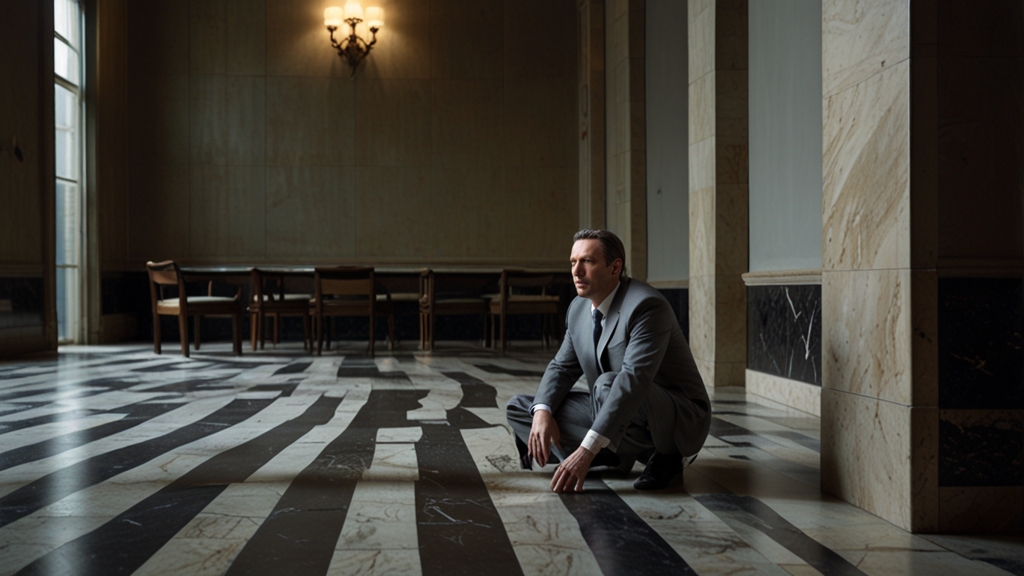What Would Jesus Do? Revisiting His Most Controversial Decisions
The figure of Jesus Christ has been a focal point of theological debate, ethical guidance, and moral contemplation for centuries. The question "What would Jesus do?" often serves as a moral compass for millions of believers worldwide. However, some of His decisions and actions remain controversial and provoke significant discussion. This article aims to revisit some of Jesus' most debated decisions to offer a fresh perspective.
The Cleansing of the Temple
One of the most dramatic episodes in the New Testament is the cleansing of the temple. Jesus entered the temple in Jerusalem, found it overrun with money changers and merchants, and flipped their tables in a rare display of righteous anger.
"And Jesus went into the temple of God, and cast out all them that sold and bought in the temple, and overthrew the tables of the moneychangers, and the seats of them that sold doves, And said unto them, It is written, My house shall be called the house of prayer; but ye have made it a den of thieves." – Matthew 21:12-13
This act was controversial because it seemed to contradict the peaceful and forgiving nature that Jesus often portrayed. While some interpret this as a zeal for pure worship, others see it as an aggressive act that raises questions about the balance between righteous indignation and physical action.
The Parable of the Good Samaritan
The Parable of the Good Samaritan is another contentious topic. In this story, Jesus told of a man who helped a stranger beaten and left for dead, while others, presumably more 'religious', passed him by.
"But a certain Samaritan, as he journeyed, came where he was: and when he saw him, he had compassion on him." – Luke 10:33
This parable was revolutionary because Samaritans were generally despised by the Jewish people of that time. By making a Samaritan the hero, Jesus challenged societal norms and prejudices, encouraging His followers to transcend cultural and ethnic boundaries. This story raises questions about how we treat 'the other' and our own biases.
Forgiving the Adulterous Woman
Jesus' decision to forgive the adulterous woman brought before Him is one of His most compassionate yet controversial actions. The Pharisees wanted to stone her, adhering strictly to Mosaic Law. However, Jesus diverted the crisis by posing a simple yet profound challenge.
"He that is without sin among you, let him first cast a stone at her." – John 8:7
This incident questions the application of justice and mercy. Jesus' words highlight the importance of self-reflection before passing judgment, but His decision to forgive rather than condemn the woman has been hotly debated. Was He negating the law, or was He offering a new understanding of grace and compassion?
Eating with Tax Collectors and Sinners
Jesus often dined with tax collectors and sinners, individuals deemed unworthy by societal and religious leaders. This decision was met with severe criticism.
People questioned why He chose to associate with those considered immoral. Jesus answered this controversy by stating that His mission was focused on those in need of spiritual healing.
"They that are whole have no need of the physician, but they that are sick: I came not to call the righteous, but sinners to repentance." – Mark 2:17
This act challenges religious elitism and promotes inclusivity. By socializing with outcasts, Jesus underscored the idea that everyone is worthy of dignity and redemption, challenging societal norms around purity and religious worthiness.
Conclusion
Revisiting Jesus' controversial decisions provides a nuanced understanding of His teachings and actions. Whether it's the fierce cleansing of the temple, the inclusive nature showcased in the Good Samaritan parable, the delicate balance of justice and mercy in forgiving the adulterous woman, or the radical inclusivity of dining with sinners, each decision offers deep ethical and spiritual lessons. As we ponder "What would Jesus do?" it’s essential to consider these complex and often provocative aspects of His life, encouraging us to look beyond our biases and embrace a more profound, transformative compassion and righteousness.




